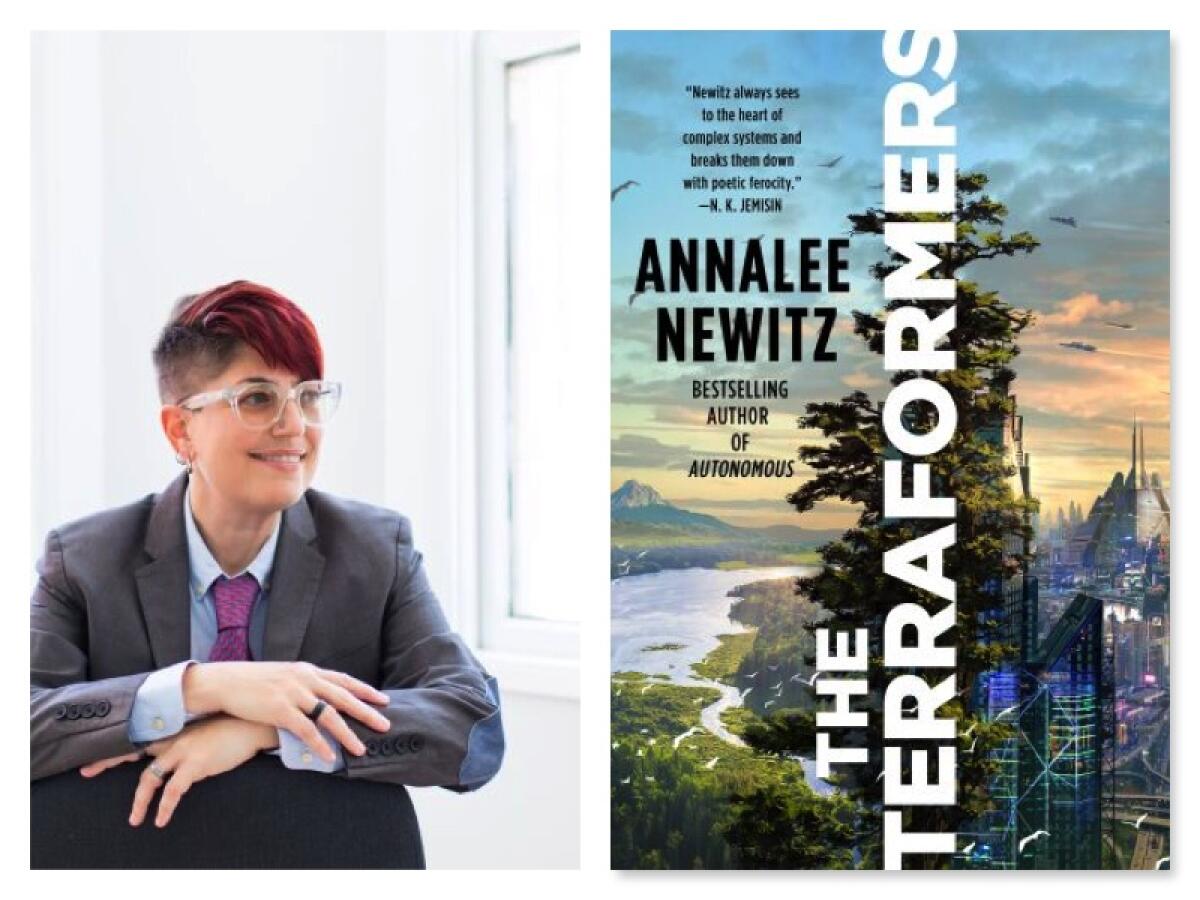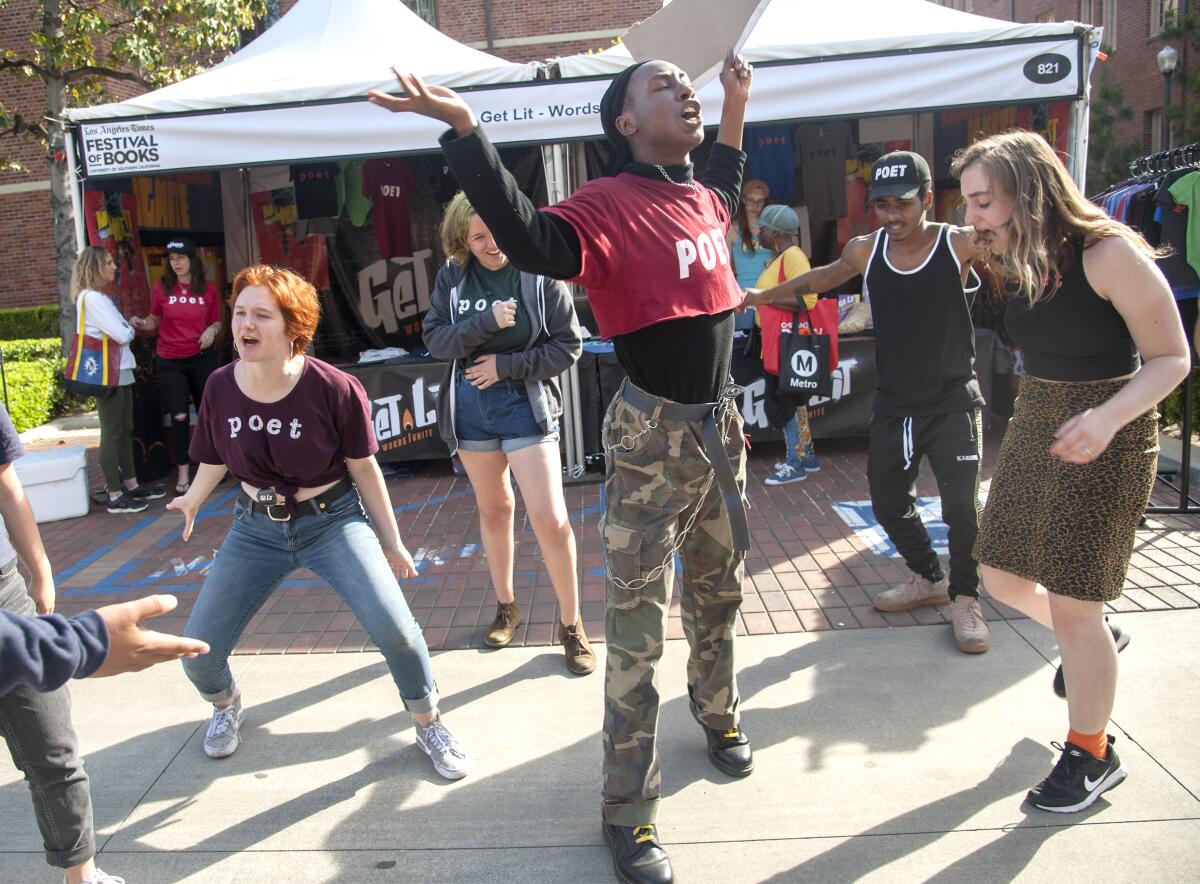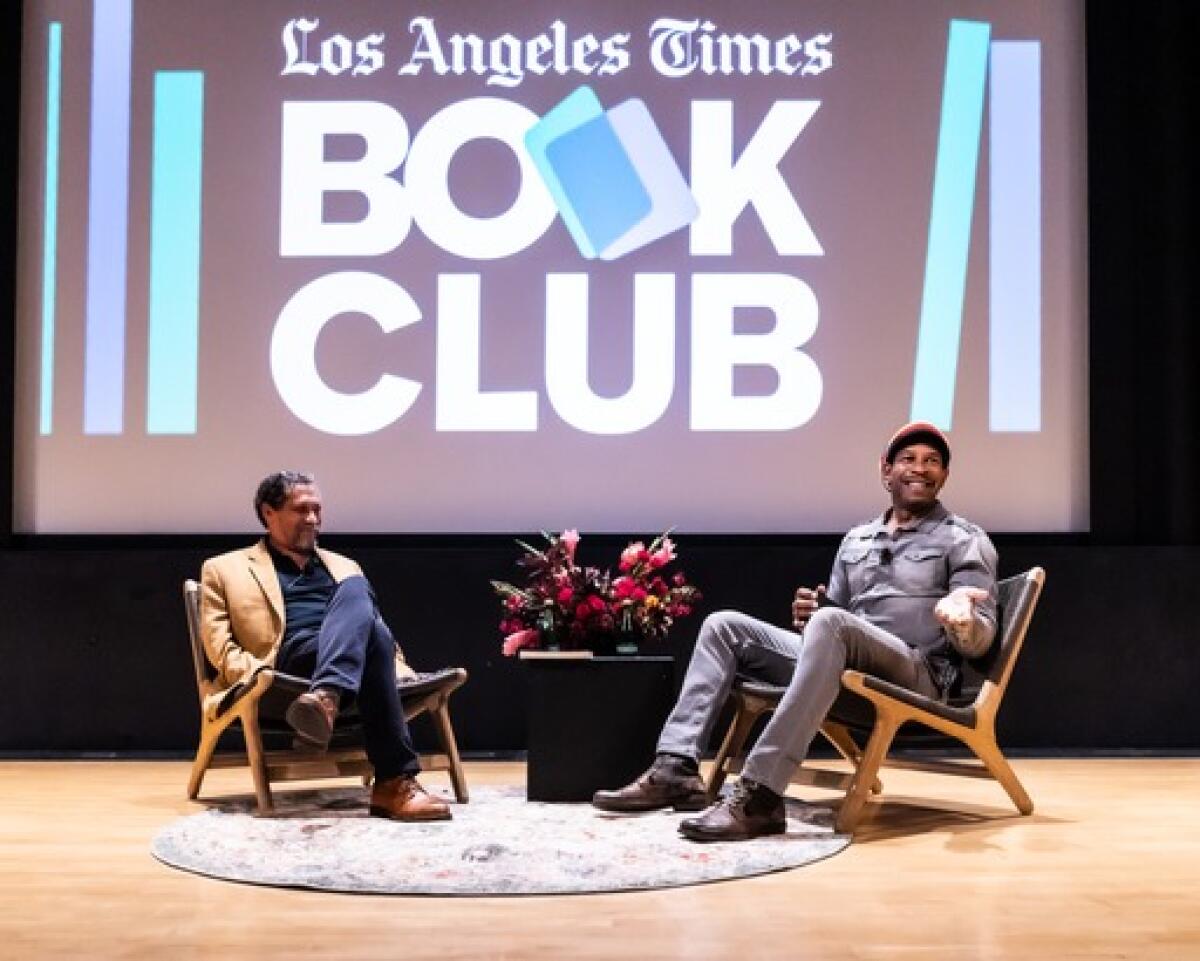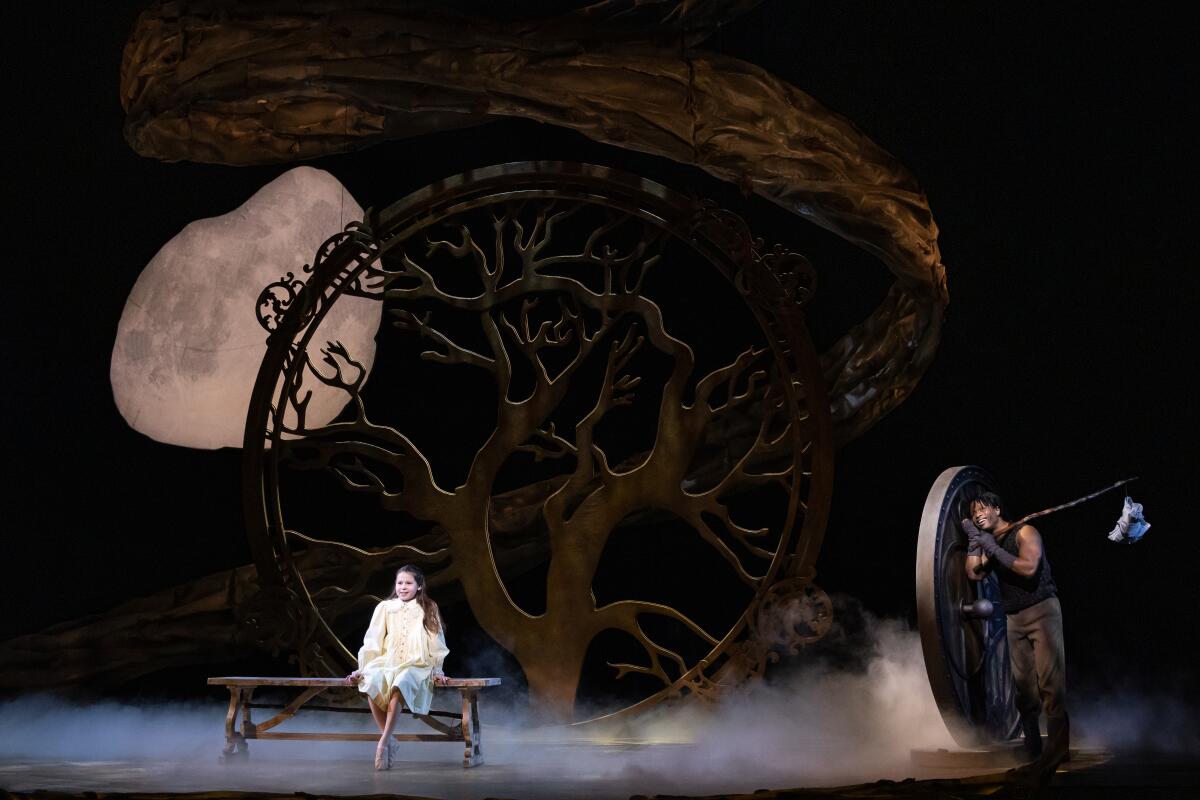Book club: Annalee Newitz dreams up a wild, more hopeful future

Sci-fi author Annalee Newitz brings “The Terraformers” to the L.A. Times Book Club on March 28
- Share via
Good morning, and welcome to the L.A. Times Book Club newsletter.
When Annalee Newitz created “The Terraformers,” a sprawling novel set 60,000 years in the future, the author turned to old Hollywood for inspiration.
Newitz says Destry, the novel’s tough but empathetic environmental ranger, gets her name from the lead character in “Destry Rides Again,” a 1939 western starring Jimmy Stewart.
Stewart’s character dislikes firearms and tries to avoid carrying one, even though he’s the son of a legendary gunfighter. It’s one of Newitz’s favorite films and it helps bring to life the sci-fi novel’s idealistic protagonist.
In the acknowledgements, Newitz explains, “I wrote this book because I wanted to dream up a more hopeful world.”
Raised in Irvine and now living in San Francisco, Newitz joins the L.A. Times Book Club March 28 for a live streaming conversation with columnist Carolina A. Miranda. Sign up on Eventbrite for watch links and autographed books.
In the Times, reviewer Mark Athitakis calls “The Terraformers” an “ingenious, galaxy-brain book.”
“This generously overstuffed tale has enough ideas and incidents to populate half a dozen lesser science fiction books,” says Paul Di Filippo in the Washington Post. “But the reading experience is never clotted or tedious, never plagued by extraneous detours. “
Throughout, Newitz redefines what it means to be a person. The novel’s characters include a flying moose named Whistle, a sentient passenger train obsessed with games and an alternative human subspecies that breathes carbon dioxide and lives in a secret city beneath a volcano.
While writing “The Terraformers,” Newitz compiled a massive document — essentially a mini-encyclopedia for the planet Sask-E — to keep the details straight. One of the keys to writing science fiction, the author says, is trying to create an internally consistent imaginary world.
“I think it’s part of the pleasure for readers too, because the more consistent the world is, the more you can immerse yourself in it, and escape from the dreadfully inconsistent world that we live in.”
What questions do you have for Newitz? Please share your comments and questions in advance of book club night in an email to bookclub@latimes.com.
Festival countdown
The 2023 Los Angeles Times Festival of Books returns to the USC campus on the weekend of April 22-23.
Lineup announcements, schedules and festival activities are coming March 15. Keep an eye on latimes.com/fob for updates.
The festival still needs more book lovers to volunteer and help with author conversations in all genres.
“The Festival of Books became a tradition for me from the first year I volunteered in 2002,” says Raena Hawkins, the festival’s volunteer coordinator.
“It’s such an amazing gathering of people passionate about reading and literacy. Everyone is so excited to be there. It’s like summer camp every year I return, with volunteers catching up on what they’ve been up to before heading out to create a great experience for all who attend.”
Here’s the volunteer sign-up page.

Keep reading
Wild stories. Check out 10 new books to read in March, including tales of foraging and magic, cults and crackups and social ills. You’ll find new releases from Mona Simpson, Nguyen Phan Que Mai, Michelle Dowd and Eleanor Catton in critic Bethanne Patrick’s latest roundup.
Book Awards. Los Angeles novelist and recent book club guest Percival Everett took home the $75,000 PEN/Jean Stein Award this month for his novel “Dr. No,” via Publisher’s Weekly. Everett joined us in November at the Autry Museum of the American West for a conversation with columnist LZ Granderson about his life writing and teaching fiction.

Breakout bestseller. “If I could have dreamed it,” says Bonnie Garmus, “I wouldn’t have dreamed it quite this big.” The 65-year-old writer is talking with the Seattle Times about her debut novel, “Lessons in Chemistry,” set in early 1960s California and focused on Elizabeth Zott, a brilliant chemist frustrated by workplace sexism who unexpectedly finds herself hosting a cooking show. The book has sold a million copies and is in the works for an Apple TV adaption.
Oscar season. Columnist Mary McNamara catches up with Shane Salerno, the “Avatar” scribe who happens to be Hollywood’s go-to book agent.
Why you should read (or reread) “The House of Spirits.” The California Book Club savors Isabel Allende’s 1982 bestselling novel this month. “Originally developed as a letter to her dying grandfather, it is a book that blurs all sorts of boundaries: between naturalism and magical realism, fiction and family history,” David Ulin writes for Alta magazine.
Classic revival. Former Times editor Sherry Stern explains how “The Secret Garden,” adapted by Marsha Norman from the 1911 book by Frances Hodgson Burnett with music by Lucy Simon, found a new life at the Ahmanson Theatre this season. Ashley Lee also looks at the many changes to the Broadway musical.

Ode to the English major. Times reporter Matt Pearce writes about being an endangered species.
Tribute to P-22. The Los Angeles Public Library is offering a limited-edition library card to honor P-22, the mountain lion who prowled Griffith Park for more than a decade. The card features the famous photo by Steve Winter of National Geographic of the cougar wandering the park with the Hollywood sign in the background.
Library wars. Times national correspondent Jaweed Kaleem explains how drag queen story hours became a battle over gender, sexuality and kids.
ICYMI: ‘The Violin Conspiracy’
Bestselling author Brendan Slocumb joined book clubbers Feb. 23 to discuss his mystery “The Violin Conspiracy.”
You can watch Slocumb’s virtual conversation with Times classical music critic Mark Swed online.
Slocumb is a musician and music teacher who grew up reading Sherlock Holmes mysteries. He began writing during the pandemic lockdown of 2020, and his debut novel introduces readers to a rising star in the classical music world whose priceless family Stradivarius is stolen before one of the world’s biggest music competitions. “The Violin Conspiracy” also explores family, race, discrimination and finding your way against all odds.
“I am a huge, huge advocate for public school music,” Slocumb says. “It set me on the right course. It changed my life.”
Last word
“I hope that we remember that when we are banning books, we are banning truth.” — California author and National Book Award winner Sabaa Tahir, at last weekend’s Tucson Festival of Books.
Sign up for our Book Club newsletter
Get the latest news, events and more from the Los Angeles Times Book Club, and help us get L.A. reading and talking.
You may occasionally receive promotional content from the Los Angeles Times.




